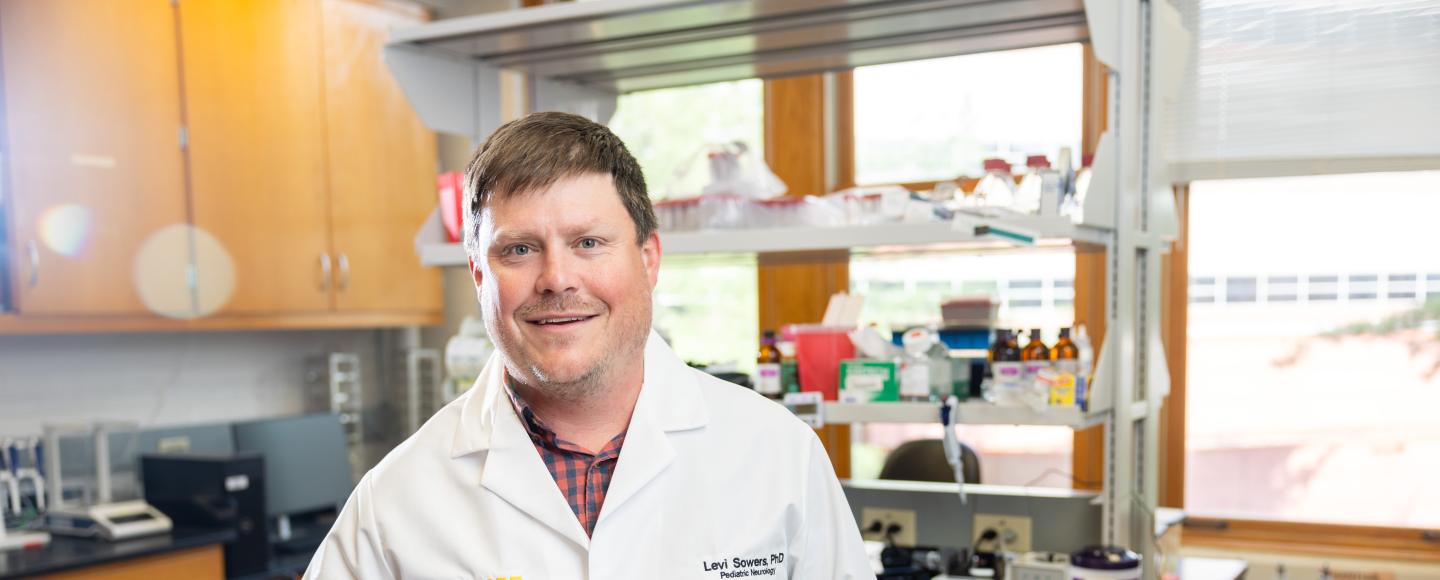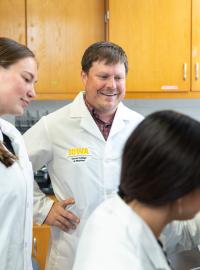Table of ContentsClose

Post-traumatic headache (PTH) shares many of the same symptoms as migraines. Characterized by severe pain and sensory hypersensitivity, they’re disruptive and often difficult to treat.
However, unlike migraines, PTH is typically triggered by traumatic brain injury (TBI). It’s especially prevalent among military Veterans—studies suggest that as many as 50% of Veterans continue to experience chronic PTH for more than six months after even mild TBIs.
Despite the similarities, there are currently no FDA-approved treatments specifically for PTH. This gap in care is what drives University of Iowa Health Care researcher Levi Sowers (12PhD), assistant professor in the Stead Family Department of Pediatrics and the Division of Child Neurology. Sowers’ PhD studies at Iowa—working with pediatric neurologist Alex Bassuk, MD, PhD, now chair of the Stead Family Department of Pediatrics—laid the foundation for a career focused on understanding and treating complex neurological conditions.
He expanded his expertise in the lab of Andrew Russo, PhD, a professor in the Department of Physiology and Biophysics. Russo is an internationally recognized migraine expert whose research contributed to the development of FDA-approved drugs targeting calcitonin gene-related peptide (CGRP), a molecule linked to migraine pain. Together, Russo and Sowers patented a drug targeting another peptide implicated in headache disorders, pituitary adenylate cyclase-activating polypeptide (PACAP), which recently completed Phase II clinical trials. This work helped inform Sowers’ current research.
Sowers serves as an investigator with the U.S. Department of Veteran Affairs (VA) Center for the Prevention and Treatment of Visual Loss, based in Iowa City. His VA-affiliated lab focuses on the brain mechanisms behind sensory symptoms like photophobia, or light sensitivity, which is often the most distressing symptom of both migraine and PTH, second only to pain. “When I started working on traumatic brain injury-induced headaches and migraines, which are huge problems among Veterans, it was meaningful to know that my work might help in some way,” Sowers says. “I think we have a moral obligation to take care of our Veterans.”

